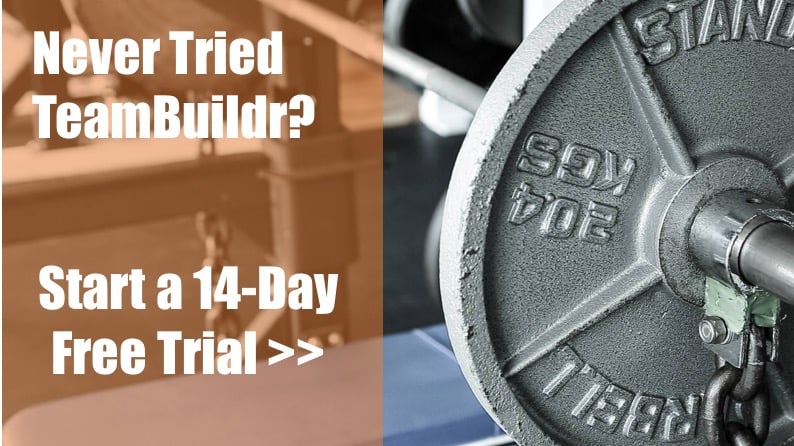7 Things Strength Coaches Should Know Before Going to the Private Sector
At the recent NSCA Personal Trainers Conference, there was a great talk given by Robert Linkul who is the main source for the information in this blog dedicated to people aspiring to become personal trainers in the private sector. This particular session was devoted to fitness/strength & conditioning professionals looking to enter the personal training business and has been adapted to speak directly to strength and conditioning coaches.
1. Know the Lies
Going into business on your own is a very sexy concept: Choose your own hours, make more money, possibly own your own facility. But the majority of being a private business owner is behind-the-scenes work that is not much different from being a full-time strength coach. Here are a few statements that you need to acknowledge are not true just because you become a private trainer:
“Do what you love and the money will follow.”
“It’s not working hard… it's working smart.”
“Dream big, think good thoughts, and good things will happen.”
“Learn from someone who has ‘been there, done that.’”
2. Must Focus on Success
Tips and tactics are good but there are fundamentals that have never changed. For one, hard work is the cornerstone of a successful strength and conditioning career and that won't change because you're training the civilian population. Rather than sweeping the floor at 8pm, you may be writing blog posts at 8pm to create brand awareness. Take the same work ethic and study marketing, branding, referral-generation, and other business concepts just as you put in the same time studying physiology and kinesiology.
Heck, rip a page out of Ron McKeefery's playbook – he started with the well-known business book "The 4-Hour Work Week" and built his personal brand after binging on business books.
3. You Must Evolve or You Will Go Out of Business
Marketing is always changing. Social media changes (Periscope, anyone?). Diets always change. Sometimes trends and fads are wrong but people are looking for the next evolution to capture an edge. As a professional in this space, you will need to be "in the know" about these things because your clients will care about them.
Examples:
1. Think of the major businesses today: Netflix, Zappos, Uber. They killed off traditional models that used to be cash cows. 1-on-1 personal training could be dead now.
2. The newer, more innovative model is training more clients for less money per client via group training or online training.
3. NSCA does not teach TRX and kettle bells, but you sure as hell need to know about them.
There is nothing wrong with the "old school" strength coach mentally. But when you step into the private arena, you have to play the game and know what's going on.
4. Understand the Client Mindset
The people you will generally train as a private strength and conditioning coach are not collegiate athletes. There is a different mindset and it needs to be approached differently. Here are some questions you should ask yourself before instructing private clients:
Are you in the best place of your life? Physically?
Are you employing a trainer to train you? If not, are you a hypocrite?
These are questions your clients are asking themselves before they decide to give you money to train them. The same reasons or answers you gave to that question are the same ones your potential clients. You have to truly believe coaching is valuable so that you can truly preach the same message to your clients.
Additionally, you need to hone your emotional intelligence skills. In a recent study of over 150 trainers, it took a trainer on average 7 seconds to interrupt a client during a sit down evaluation. That's wrong! These people are your clients; you need to listen to them – not shove your graduate degree knowledge down their throats. Here are some common scenarios:
People say “I want to get toned” - You answer scientifically which makes them feel dumb.
“I don’t want to get big” - You laugh or go on a rant about this pervasive myth.
Don't impose your authority on your clients. Understand. Listen. Just because you have 2 master’s degrees does not mean you have to jump on the person.
Relate. Empathize. Your financial world will change when you perfect this skill.
Finally, make a list of all the reasons you have not hired a trainer for yourself. That is what your prospect thinks too. You need to address it.
5. The Principle of the "Slight Edge"
You should be soaking up ideas or creating new ones all the time. Write them down, ask friends about them, play with them, test them out.
Everything great you’ve seen in your life started as an idea. Something will eventually be unique to you and you will be able to leverage that in your favor. If you get .03% better every day by creating and acting on ideas, you will become exponentially better over the year.
The edge is gained by accumulating knowledge, expertise, greatness.
Example:
Stop arguing over the best diet… the U.S. has never been more obese. The slight edge needs to be focused on the area that needs it the most (in this case, obesity). Your ideas should be original and impact big problems that clients can relate to.
6. Start With Why
The golden circle is an infamous TED talk - "why, how, what." In short, everyone company knows "what" it's doing. Most know "how" to do it." Very few know "why" they do it.
Keep this in mind: making money is a result. Its a scorecard. It’s NOT why or how you do things. Very few organizations know why they do what they do. Every organization knows what they’re doing. Some know how they do it. Very few know WHY they do it. Once you know why you’re doing something and you STILL do it, then you’ve figured it out.
Think of the Apple fans who get Apple tattoos. That sort of fandom evolved out of a company that understood "why" it built technology products – employees at Apple, under the leadership of Steve Jobs, wanted to change the world by creating technology products that were artful and different. That company has not looked back since.
7. Culture is Key
Westside Barbell still outperforms other gyms. They’ve been doing it for decades.
Same with other companies in their respective industries: Apple. Zappos. Nike. Virgin.
It’s inside of their culture.
Example:
Nike: External motto: "Just do it." Internal motto: "Evolve immediately.” They dropped the fuelband after pouring tens of millions of dollars into it. They didn’t get attached; they moved on. It's in their culture.
As a business owner, you are the CEO which means that you get to decide the culture of your practice.
Subscribe to our blog
Subscribe to receive the latest blog posts to your inbox every week.
Related posts

Stacking Bricks: Dealing with Stressors of the Season

So You Want to Olympic Lift Your Team: Part 4 - The Power Snatch

